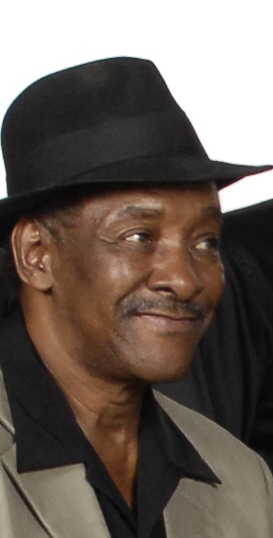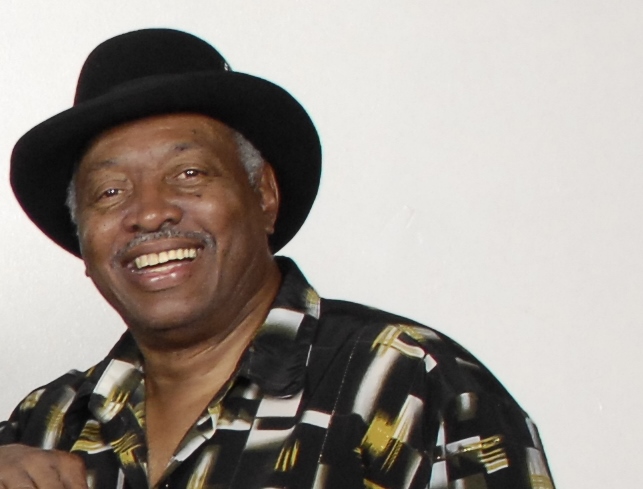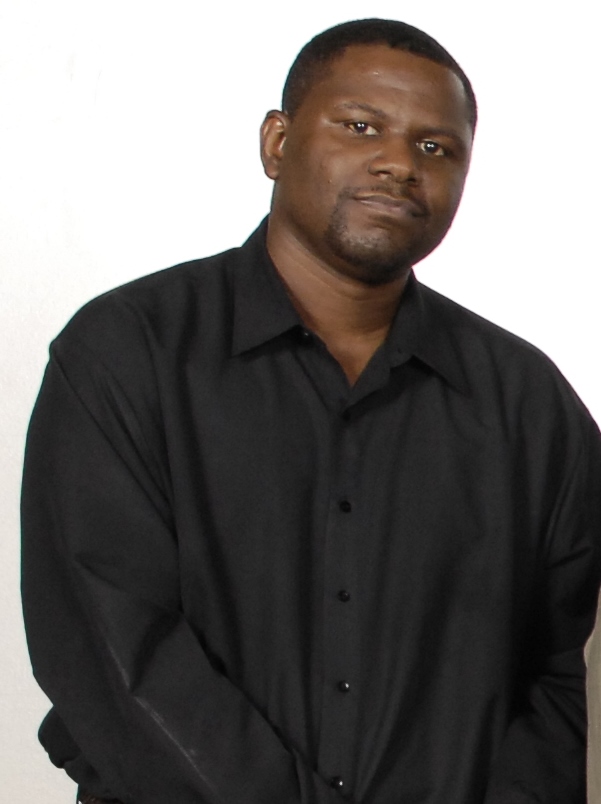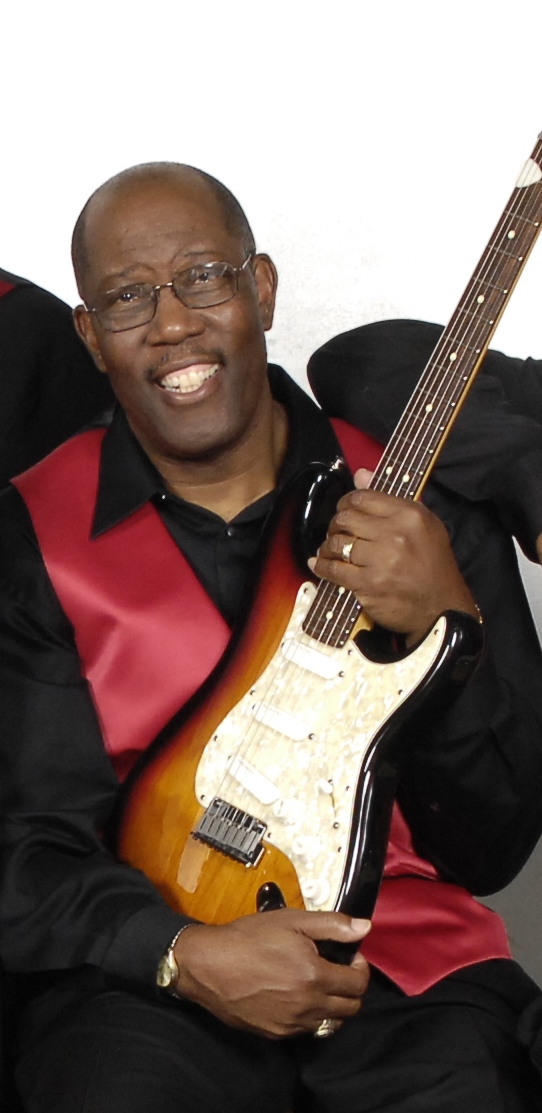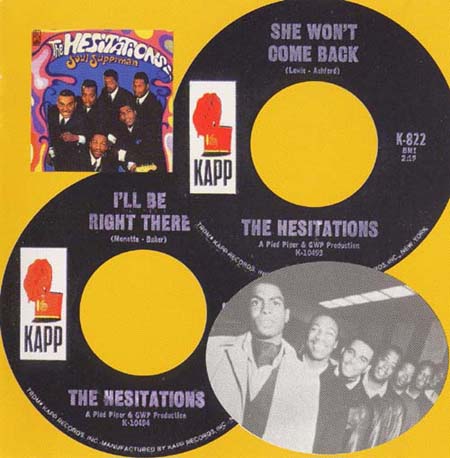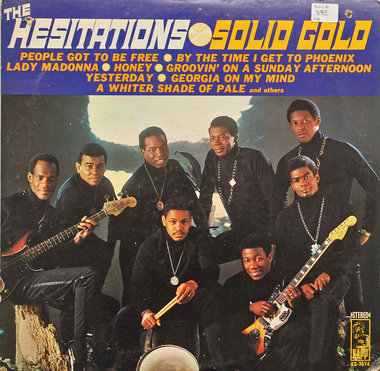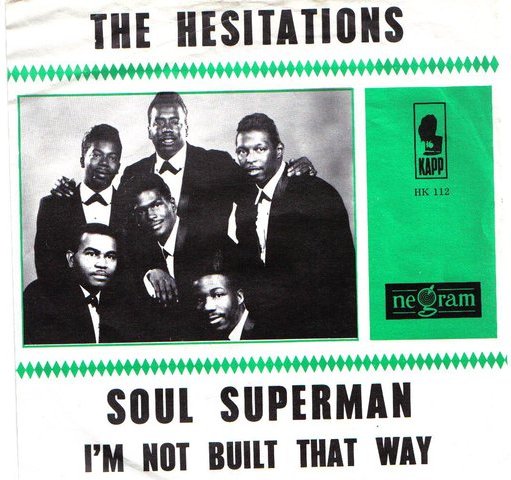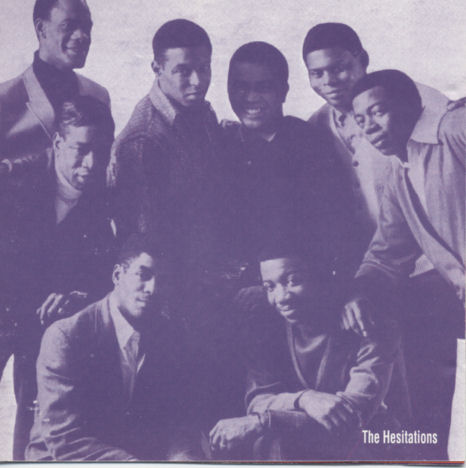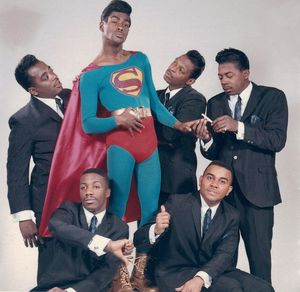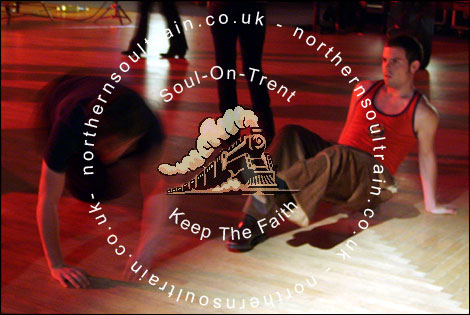Welcome To Northernsoultrain
Hesitations
“If we had a Berry Gordy in Cleveland, we would have been stars,” stated Art Blakey, recalling the famed Motown Records founder and Blakey’s own vocal group from the 1960s, the Hesitations.
Blakey isn’t just blowing smoke. Cleveland’s Hesitations dented the Top 40 Charts without Gordy’s help. In 1968 their soulful rendition of “Born Free” reached number 38, and songs such as “Soul Superman” (number 42, 1967) and “Climb Every Mountain” (Number 90, 1968) made the Hot 100. Other Hesitations tracks like “The Impossible Dream” and “Who Will Answer” made the R&B charts.

As one can see by some of the titles, the group specialized in taking middle-of-the-road songs and adding a little soul to make them their own.
“There were a lot of good singers in Cleveland back then,” Blakey said, getting back to his point that Cleveland needed a local Gordy. “We had singers like Edwin Starr (who later hit with “War” on Motown), Bobby Womack and the O’Jays (the latter two Rock and Roll Hall of Fame inductees
Back in the early 1960s, the aforementioned singers provided some of the competition for Blakey’s vocal groups.
“Every (Cleveland) neighborhood had a bunch of vocal groups back then,” he said. “We would have battles of the vocal groups (competitions) every Sunday at the Circle Theater.
Singing on the streets
Like so many singers who reached prominence during the early rock’n’roll/rhythm and blues era, Blakey began singing on the street corners. He first teamed with William Carter and George Hendricks in 1955 to form The Collegians. The Collegians and Blakey’s subsequent groups, the Crown Imperials and the Sahibs, each with revolving and evolving memberships, entered those vocal group battles.
“If you couldn’t sing, you couldn’t live in our neighborhood,” said the singer who grew up on the east side, near Central Avenue.
Other groups followed in Blakey’s career — the Orientals, the Cleveland Flames, Willie Parker and the Vandors and, at the start of Bealtemania and the British Invasion, when long hair was the in thing, the Wigs.
Finally, the beginnings of the group that would become the Hesitations went to Detroit in 1965 to try and get a recording deal. Some of the singers with whom Blakey associated — and Blakey, himself, when he was with the Sahibs — had tried to get signed by Motown in the past, but none had any luck in those attempts. So, the men needed a fresh place to start.
“Our friend, Edwin Starr, put us in touch with (the label) Golden World in Detroit. He had recorded ‘Twenty-Five Miles’ for them before they eventually were bought by Motown,” Blakey said.
Jack Ashford, one of Motown’s famed Funk Brothers (the band that backed singers on many classic hits) liked something he heard in the Cleveland group.
“We sounded terrible,” Blakey said. “I don’t know what he heard in us.”
The group, now called the Hesitations, through Ashford, signed a deal in 1967 with Kapp Records, the 1960s home of such acts as Akron’s Ruby & the Romantics, crooner Jack Jones, and the British group the Searchers.
The next thing Blakey knew, he was in the studio with producer Teacho Wilshire performing with the backing of the Chicago Symphony Orchestra.
“They blew me away just tuning up,” he said of the orchestra, not accustomed to such grandeur when singing with his groups.
Making a record
That first album, “Soul Superman,” included songs from various sources and did not employ the formula that would bring the Hesitations into the limelight — covering well-known tunes.
It was in the following year when things would get really exciting, especially when “Born Free,” featuring lead singer Blakey’s soulful tag, turned the tame movie theme into something more.
“When we were doing ‘Born Free,’ we were doing it with a gospel thing,” Blakey said.
“‘Born Free’ was originally the B-side (of the 45 rpm record). The A-side was ‘Love is Everywhere.’ The record company thought ‘Born Free’ would only appeal to black folks.”
Stardom
DJs Ken Hawkins and J.L. Wright from Cleveland R&B station WJMO turned the record over, pushing the group along on its way to stardom.
That stardom included performances in Europe (on a Dick Clark tour), appearances on TV in Cleveland (“The Big 5 Show”) and Philadelphia (in which they appeared with famed trumpeter Al Hirt as both acts shared manager Gerry Purcell), and performances on the ‘chitlin’ circuit’ of black theaters at venues like Washington D.C.’s Howard Theater and New York City’s The Apollo.
The Hesitations line up included Blakey, Leonard Veal, Charles Scott, King George Scott, Robert Shepherd, Philip Dorrow on guitar, bass player Jimmy Vaughan and a drummer.
Tragedy strikes
Like many groups of the time, tragedy found the Hesitations. “It was two or three weeks after ‘Born Free’ became a hit and we were going to a wedding (in Cleveland) together,” Blakey said. “I remember (King) George saying that night, ‘I can die now. We’ve got a hit.’”
The group members and a couple of wives were in one car and a band member had with him a gun he showed to the rest. As that band member was about to put the gun in the glove compartment, it went off. “Somebody just told a joke and we were all laughing,” Blakey said of the moment baritone George Scott was shot in the side of the head as he sat in the front seat, laughing along with the rest.
“(Scott) had a smile on his face as they took him to the hospital,” Blakey remembered.
The shooting was deemed accidental, but a group member was dead, and the feelings that ensued nearly broke up the Hesitations. Instead, Bill Brent, a Cleveland native who had been singing with the Drifters was brought in to sing bass and the group persevered.
Blakey, 69, now drives a truck to supplement his income, but he won’t ever get singing out of his system. “Singing is an addiction,” he said. “I’ll never quit.”

